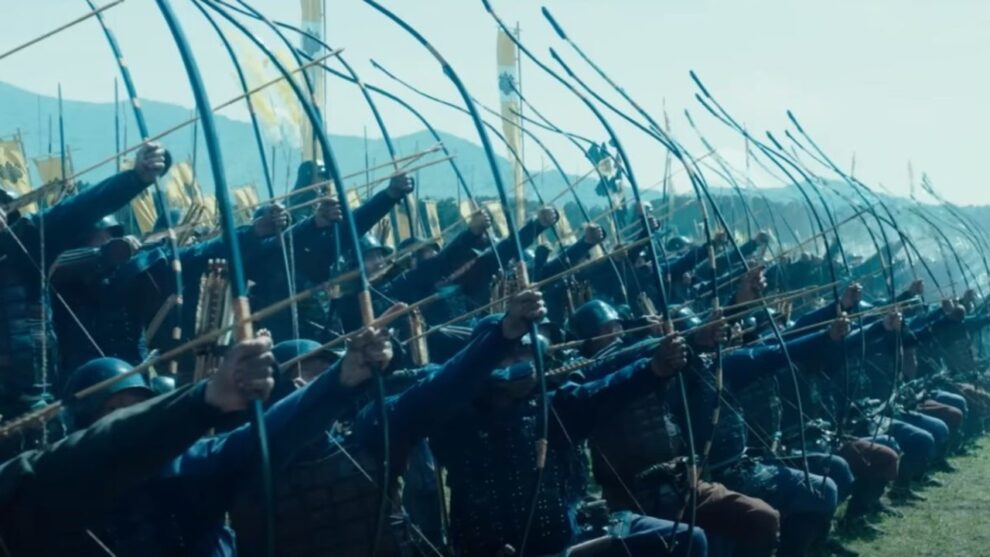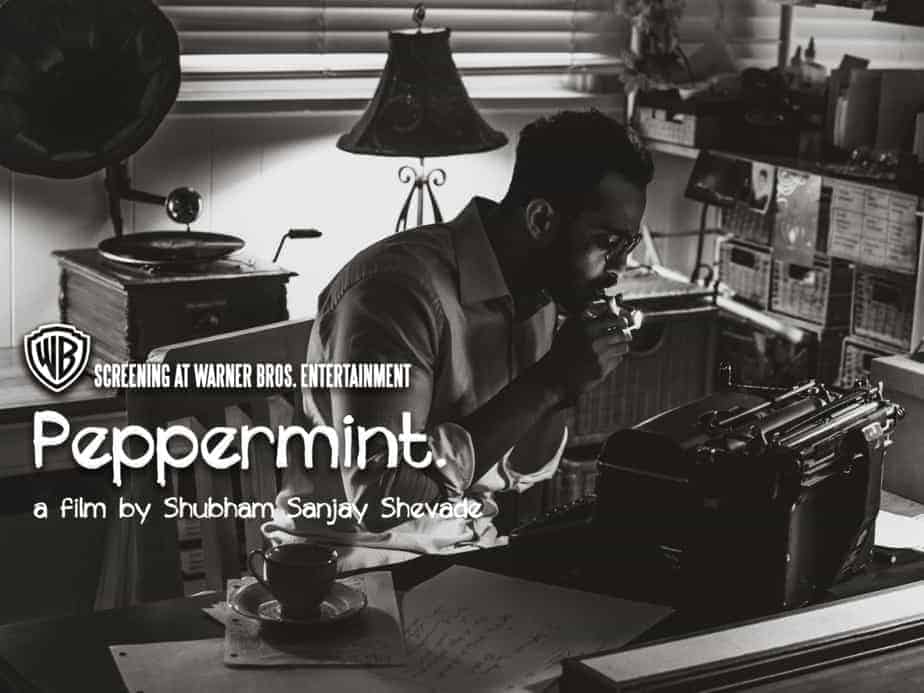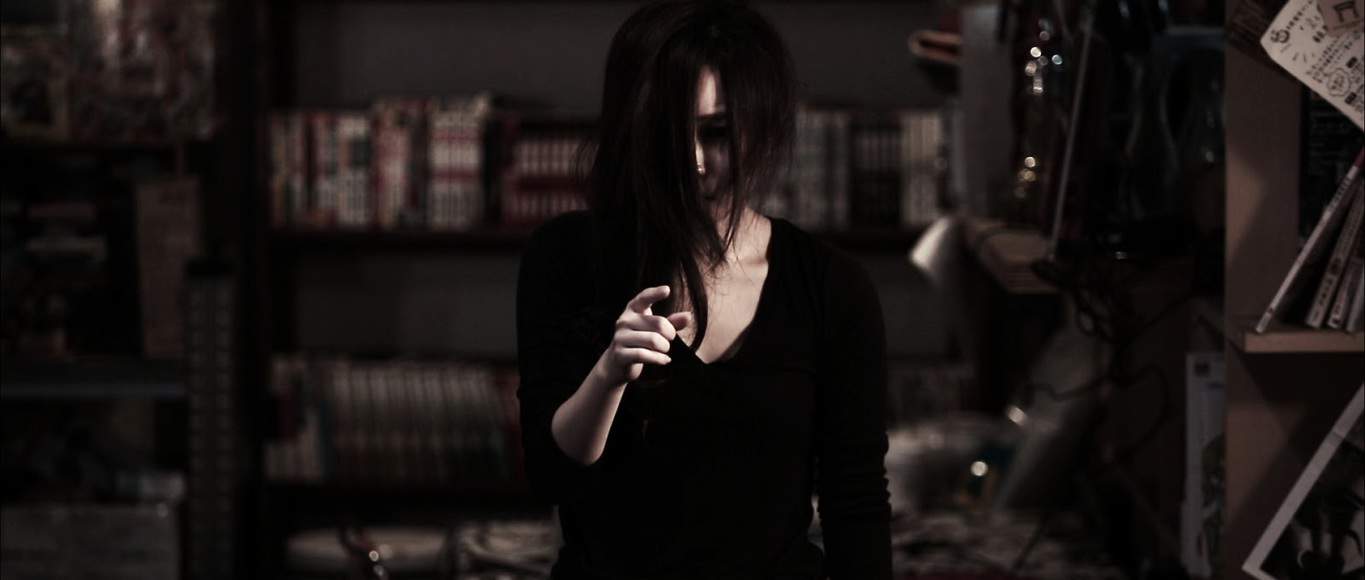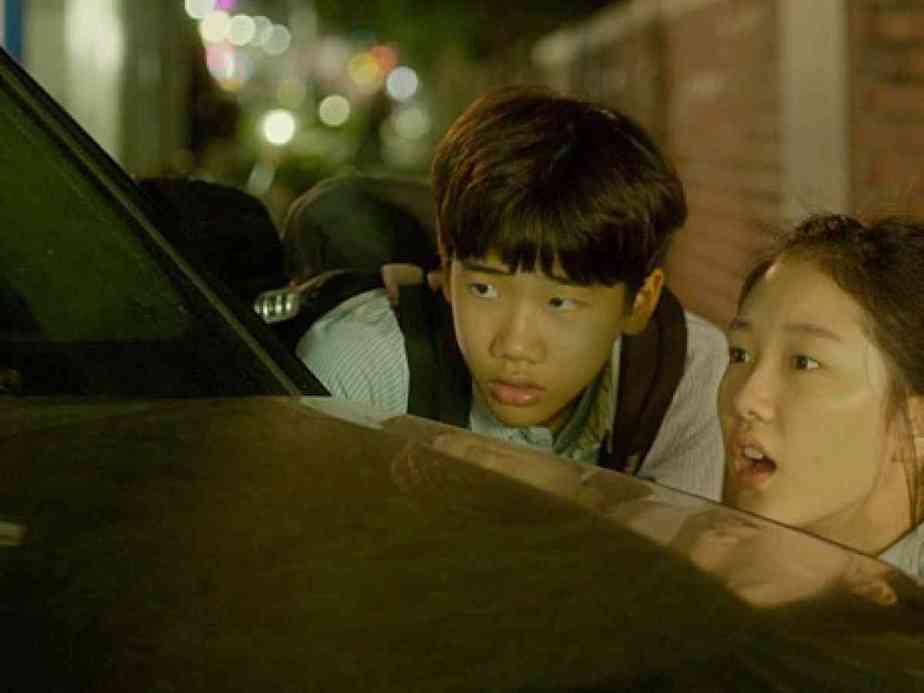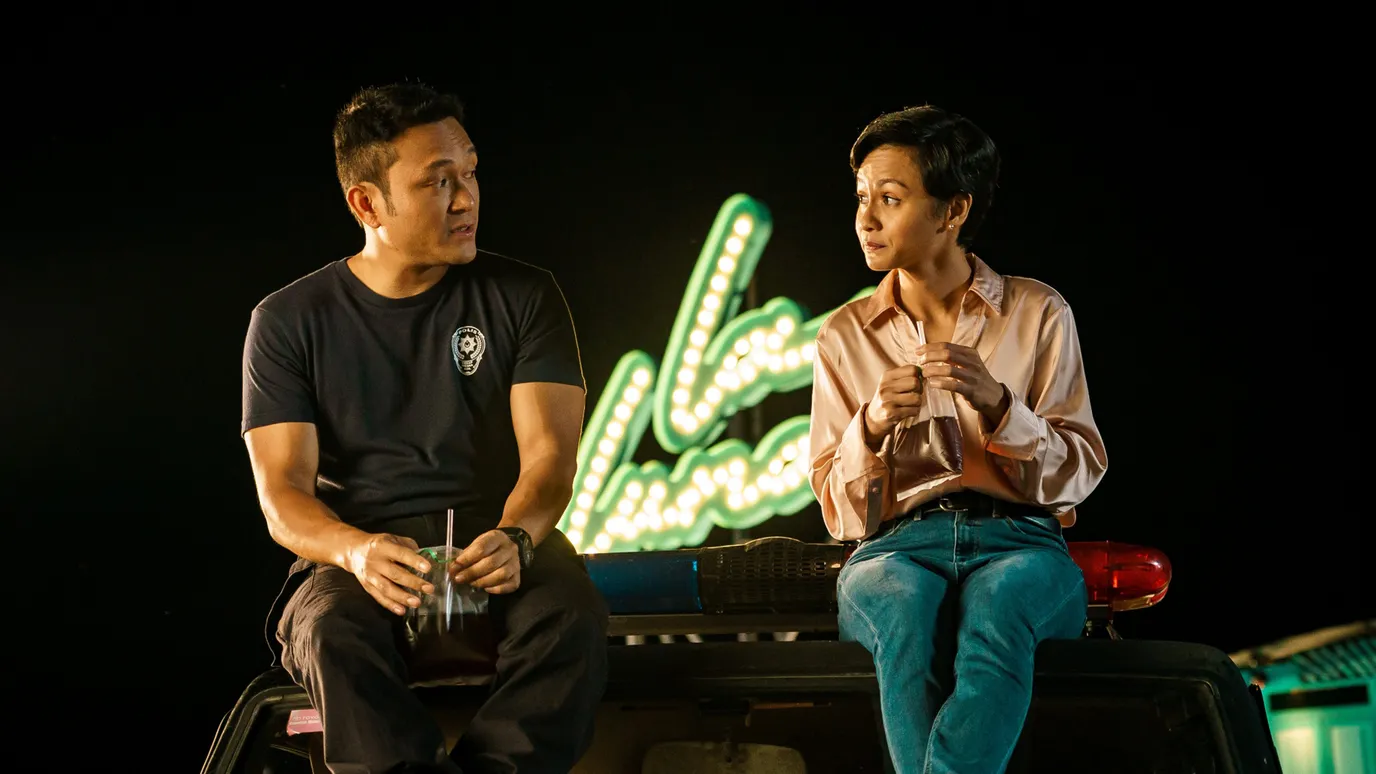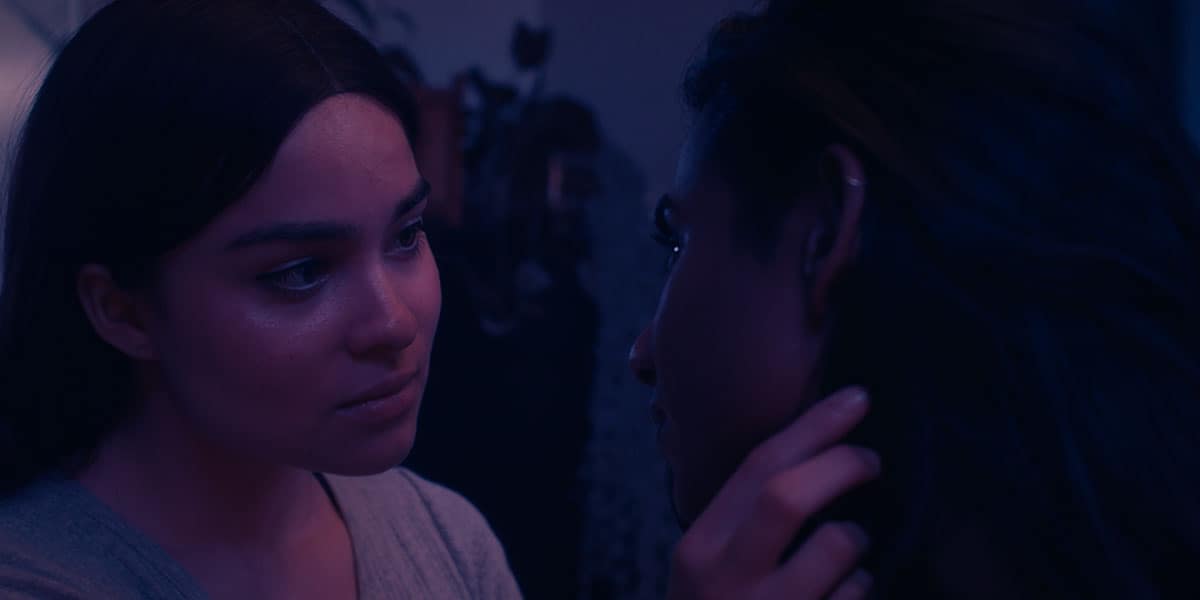Within the vast landscape of Asian cinema, the works by Takeshi Kitano, as director and actor, have always been highly anticipated by many. However, when news spread he would retire from filmmaking after making one more feature, fans already thought this one might be the samurai epic he had been developing ever since “Sonatine”. Based on the infamous Honno-ji incident, the story portrays a time of political and social upheaval in Japan and is following the footsteps of directors such as Akira Kurosawa who made countless classics and established the historical samurai movie. “Kubi”, which translates to “neck”, also features a cast of many renowned actors, for example, Ryo Kase, Tadanobu Asano, Susumu Terajima and Kitano himself in one of the leading roles.
Kubi is screening at Nippon Connection
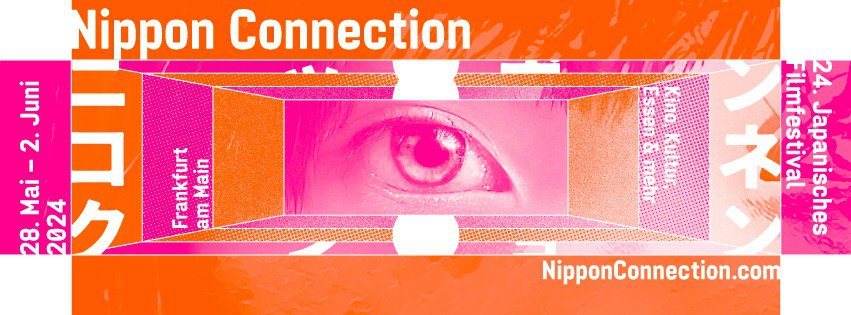
The story begins in 1582 after the uprising by lord Araki Murashige (Kenichi Endo) has been brutally beaten down by the forces of daimyo Oda Nobunaga (Ryo Kase). While Murashige manages to escape, hiding under the protection of his friend and lover Akechi Mitsuhide (Hidetoshi Nishijima), the atmosphere at court becomes unbearable for the other lords. Hashiba Hideyoshi (Takeshi Kitano), one of the prime victims for Nobunaga's jokes and humiliations, has had enough and is willing to take him up on his offer that if anyone want to work hard and prove his loyalty, he will be named the daimyo's successor. At the same time, Murashige urges Mitsuhide to take matters into his own hands and kill Nobunaga.
However, Hideyoshi and his advisors, Kanbei (Tadanobu Asano) and Hidenaga (Nao Omori), are quick to come up with a complicated scheme which would not only see him climbing the throne, but would also getting rid of the competition. However, their alliance with Mitsuhide is precarious, as even his lover has trouble guessing where his loyalties lie and whether he wants to be ruler all by himself.
According to Akira Kurosawa, who supposedly knew about the early stages of the project, “Kubi” could have the potential to be “on par” with “Seven Samurai”. Considering statements like this and the time it took Kitano to make what is presumably his last feature, it goes without saying “Kubi” is his most ambitious project. From the aforementioned ensemble to the sheer production design and the battle scenes, the ambition to create something as epic as the works of Kurosawa is clearly there. Apart from the aesthetics, there is also the thematic core which harks back to Kitano's other projects, namely the connection between soldier and ruler, the combination of loyalty, love and betrayal as well as the corruption of man. Even though the main storyline follows Hideyoshi's plot, Kitano assembles various side-characters and arcs to give his viewer an understanding of this uncertain and violent time and place.
“Kubi” shares another characteristic with Kitano's later works, especially the “Outrage”-series, which has high number of characters and the chaos that ensues because of it. Even though the addition of a person's name next to him (when we see the character for the first time) does help a bit, you will easily lose your overall view who is with which house, who is betraying who and which story is connected with the others. Certainly, some of these characters will likely not survive the 130 minutes of “Kubi”, but in the light of the additional side-plots you cannot help wondering whether some editing could have helped or perhaps some restraint in the script. What is interesting and quite well-acted by Endo and Nishijima is the dissolution of the samurai topos, as they are also bound by mutual affection and love for one another, which is quite the contrast to the image of the warrior we have seen in similar productions.
At the same time, Kitano cannot help but add his often peculiar sense of deadpan and black humour to some scenes. The interplay with Asano and Omori is especially entertaining, presenting Hideyoshi as a coarse man, often trying to show himself as the unshaken lord, but at times failing to accomplish the task. In the end, Kitano is the one who throws the final punchline in a feature which at times feels a little bloated, but offers all of the qualities fans have come to know (and cherish) in his projects.
“Kubi” is a samurai epic and Takeshi Kitano's most ambitious project. Although it could have used some restraint in some parts, for the majority it is quite entertaining and explores many of the themes which have been a constant in the director's filmography while also containing some impressive battle scenes.


